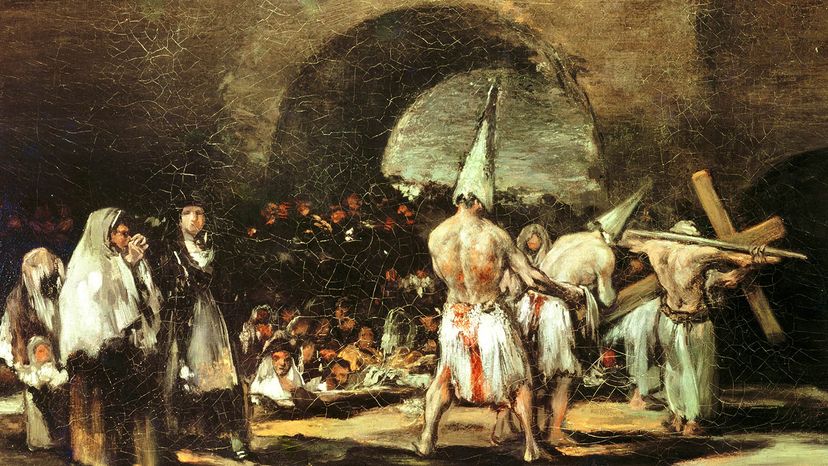Reaction to the Black Death

Because the physicians blamed the Black Death on an evil, polluted fog, logical recommendations to prevent the fever involved avoiding these miasmas, or corruptions of air.
Fires were a popular method of warding off miasmas. They were burned at street corners; even the pope sat between two large fires. People were urged to burn aromatic woods, but other scents would do as well, including rosemary, amber, musk and fragrant flowers. When they walked, people took their scents with them, carrying packets of herbs. Some plague-proofed their homes by putting glazes over the southern windows to block the polluted southern wind. People were advised not to eat meat or figs and to avoid activities that would open the pores to a miasma, including bathing, exercising and physical intimacy. Stranger recommendations circulated as well, including not sleeping during the daytime and avoiding sad thoughts about death and disease.
Advertisement
Many medieval tracts address how to avoid sickness, but we know very little about how medieval doctors tried to cure the disease. It's possible they believed nothing could be done. Most medieval cures involved bloodletting, which was an attempt to draw poison out of the body. And we know some physicians tried to rupture and drain the buboes.
But many people instead turned to the church for a cure, praying that God would end the great pestilence. Religious reactions took two extreme forms: the rise of the flagellants and the persecution of Jews.
The Brotherhood of the Flagellants had appeared earlier in Europe, but rose up in great numbers in Germany in late 1348. They believed the Black Death was the punishment of God and took it upon themselves to try to appease him. The Flagellants marched barefoot throughout Europe, whipping themselves with scourges, or sticks with spiked tails. Enormous crowds gathered to watch the ritual beatings, complete with hymns and prayers for God's forgiveness. The pope was initially tolerant of the movement, but he denounced them in 1349, and the Flagellants disappeared, seemingly overnight.
The Flagellants were also extremely anti-Semitic, but they weren't the only ones. While anti-Semitism was already on the rise in Europe, it reached a fever pitch when many came to believe that Jews were poisoning the wells and causing the Black Death. Because Jews at this time usually lived apart from Christians in separate quarters, they were in effect already quarantined when the Black Death hit the towns, so they had high survival rates.
Vengeful Christians burned Jews at the stake or set buildings filled with entire communities on fire. Some Jews responded by setting their own homes on fire before the angry mobs did it for them. Others converted to Christianity on the spot to save themselves. While the attacks on Jews were widespread throughout Europe, some of the highest casualties were in Germany. Few Jews were left in that country by the time the plague ended.
How did Europeans emerge from this insanity and overwhelming death? Find out how their religious faith faltered and what finally fueled gluttonous celebration on the next page.